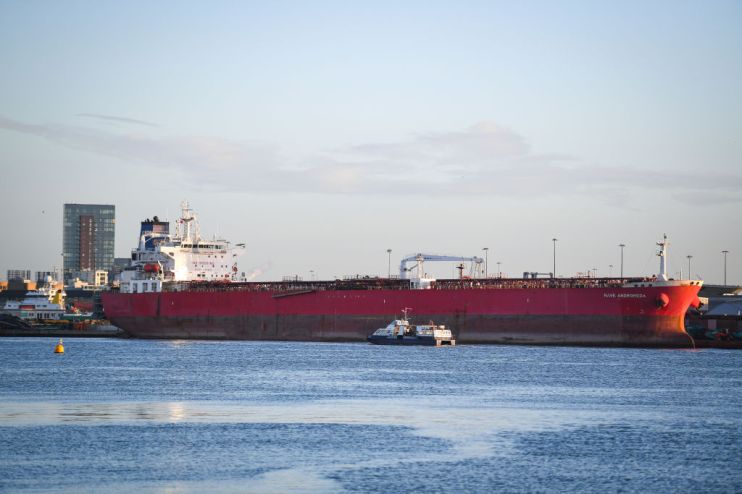Gas prices spike as strikes loom at Chevron’s Australian LNG plants

Gas prices surged this morning across Europe after workers at two major liquefied natural gas (LNG) facilities confirmed plans for daily labour stoppages of up to 11 hours next week, following a protracted dispute with operator Chevron over pay and conditions.
Workers at the Gorgon and Wheatstone downstream facilities plan to down tools for seven hours in two blocks on 7 September, which will escalate to 10 hours on 8 September and to 11 hours on 9 September, according to a document on the planned actions seen by the news agency Reuters.
The Offshore Alliance, which groups together the Maritime Union of Australia and the Australian Workers’ Union, confirmed the decision in a Facebook post today.
“Members will be participating in rolling stoppages, bans and limitations that will escalate each week until Chevron agrees to our bargaining claim. It’s set to cost Chevron their LNG exports as [the industrial action] starts to bite,” said the alliance.
Unions still have the option to call off the strikes if their terms are met – with Woodside managing to avert planned industrial action at the North West Shelf, Australia’s largest LNG facility after negotiating an 11th-hour deal for higher wages and employee-friendly rosters with workers.
The two sites account for more than five per cent of global LNG capacity, which triggered a spike in gas prices on the UK Natural Gas Futures and the Dutch TTF Futures benchmarks.
Prices climbed to nearly £1 per therm on the British benchmark, while prices rose three per cent on Dutch benchmark, to €38.40 per megawatt hour, up 10.4 per cent from Friday.
Reflecting the volatile nature of gas pricing amid challenging macroeconomic headwinds, UK gas prices eased to a 4.8 per cent gain in the early afternoon at 89.3p per therm, while Dutch prices dropped to a seven per cent loss at €35.75 per megawatt hour.
Industrial action by the same union alliance last year against Shell at its vast Prelude floating LNG site off north-west Australia cost the company around $1bn in lost exports over the two months it took to reach a pay deal.
The threat of strikes matters because Europe has been highly dependent on LNG to meet its supply needs amid a Kremlin-backed supply squeeze on Russia.
The two facilities account for more than five per cent of the global LNG export supply – meaning a shut down would result in reduced trading and make bids for LNG more competitive and expensive.
Carsten Fritsch, commodity analyst at Commerzbank, considered supply disruption in Australia to be a risk but also noted that refurbishment work on fields in Norway was also posing a challenge.
“While a lower LNG supply from Australia is still only a risk, the decline in the supply of gas from Norway is already a fact. Gas shipments from Europe’s leading gas supplier have dropped to their lowest level in over a year now that routine maintenance work has begun at a major gas field in the North Sea,” he said
The analyst also expected that high gas prices would have ceiling with data from Gas Infrastructure Europe showing average filling level in the EU is already above 92 per cent – its highest level at this time of year since 2019.
“Last year this was not achieved until mid-October. This should curb any upside potential for gas prices,” he said.
Chevron confirmed the notices for strike action when approached for comment by City A.M.
A Chevron Australia spokesperson said: “While we don’t believe that industrial action is necessary for agreement to be reached, we recognise employees have the right to take protected industrial action and we will continue to take steps to maintain safe and reliable operations in the event of disruption at our facilities.
“We will also continue to work through the bargaining process as we seek outcomes that are in the interests of both employees and the company.”